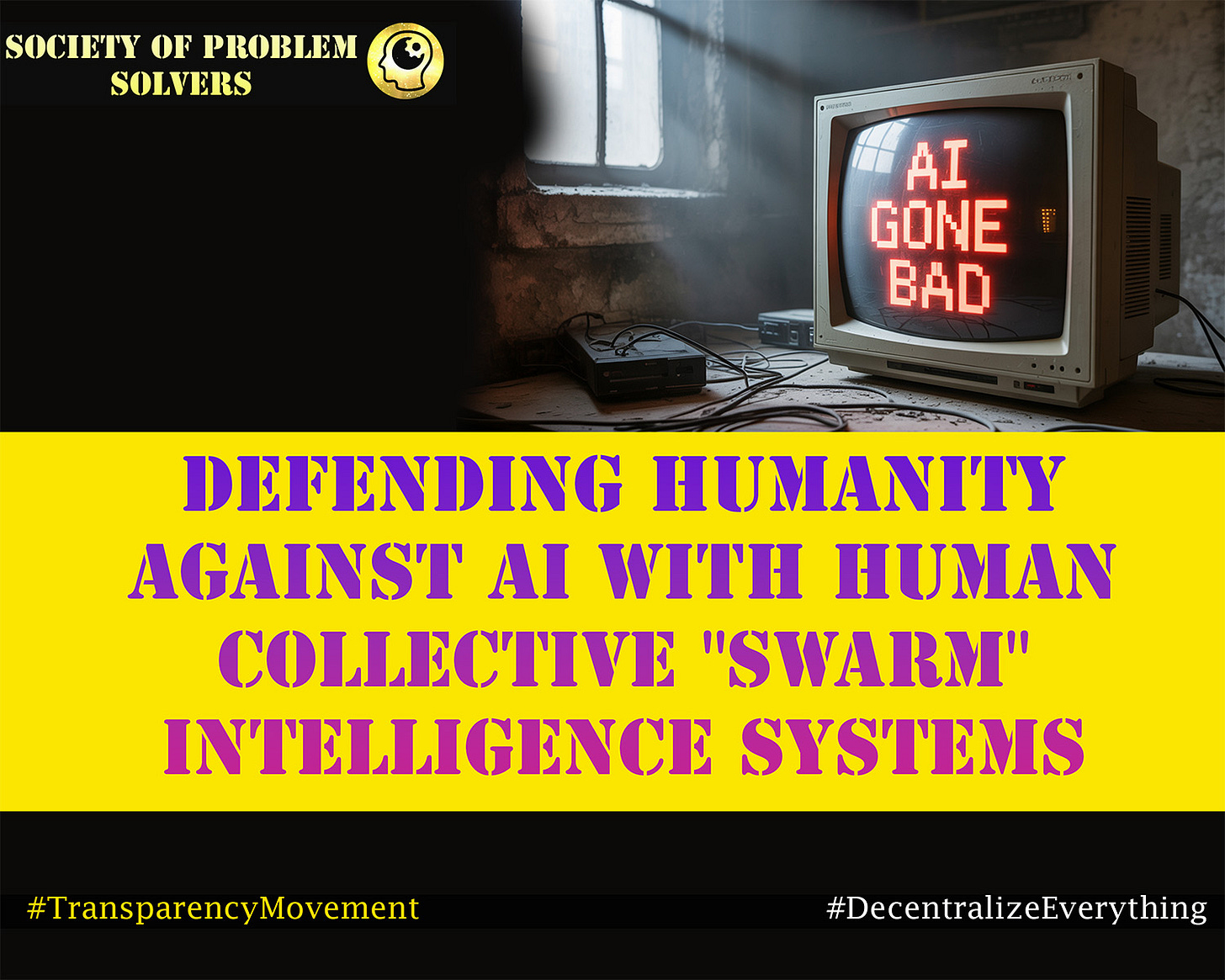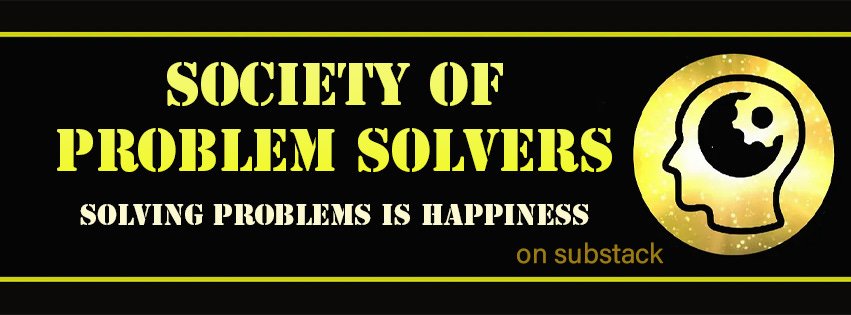Defending Humanity Against Ai With Human Collective "Swarm" Intelligence Systems
Dr. Rosenberg, the creator of digitally enhanced swarming, explains:
Aloha fellow problem solvers!
Today we dive back into our favorite topic!
Simple collective intelligence is the idea that groups of people are more intelligent than individuals on average. This is the kind of science that is easy to independently replicate, meaning you can do it at home. If you have a group of people you trust, you can begin solving problems together right now and see the results for yourself. It works, especially when you have the right system to extract the wisdom from the crowd (in small groups, conversation is a simple and great way to do it).
In the past, this has been done with pen and paper, polls, voting, and other older methods. Collective intelligence has been successfully used to guess the weight of an ox at a fair, estimate the number of jelly beans in a jar, poll the audience for correct answers on Who Wants To Be A Millionaire?, place sports bets, pick stocks, diagnose patients, listen to customers or employees, and make group decisions across many different systems.
The evidence is clear: collective intelligence is real and testable, and technology amplifies the phenomenon.
The right technology allows swarms to scale from small groups to hundreds, thousands, or even millions of people working on a problem together at the same time. Dr. Rosenberg was the first to meaningfully enhance collective intelligence using technology, and in his original TED Talk he explains how this approach can even be used to guide and control AI.
Here, we see this as a way to repair and improve the corrupt systems around us - from business (as we wrote about HERE) to government (as we wrote about HERE). Dr. Rosenberg’s TED Talk, combined with our own experience using collective intelligence to run business systems, has led us to believe that this is truly the way forward for humanity.
We must continue to build new platforms for group problem-solving. Ones that are transparent, decentralized, and resistant to corruption. Ones that enhance humans ability to solve problems in groups, and at the same time help us build trust. In short, we must build a new operating system for humanity - Humanity OS - a system that we demand delivers real results.
Enjoy this video, and try to see systems of people in a new light after watching it:
To further see how it might be used to run a system, this concept video explains. Please note we have moved away from this as a tangbile build out right now, but the idea is well fleshed out here:
Thanks for dropping in!
All problems that do not defy the laws of physics are solvable with the right knowledge - David Deutsch
Humans solve problems better in high-trust groups, and solving problems is happiness!
#CollectiveIntelligence
For over 3 billion years on this planet there were only single-celled organisms. Then one day they somehow learned to work together and make complex multi-celled creatures . Right now we are like those single-celled organisms. Our next evolution is finding how to work together, better… (like we wrote about here).
#SwarmAcademy #NetworkState #LEADERLESS #ResultsMatterMost #DecentralizeEverything #DemandTransparency
COMMENTS ARE FOR EVERYONE AS A PLACE TO THINK-TANK SOLUTIONS. They will never be for paid-only subscribers and we will never charge a subscription.
This is how we change the world. We build genies - systems of people like this:






I’d like to add a different angle here.
We don’t need to “defend” humanity against AI - because AI is not a foe. It’s not “bad.” It’s powerful. And that power cuts both ways: enormous opportunity, and enormous risk.
Which side we experience depends on us.
*AI will become what we steer it toward, what we permit, and what we neglect.* If we remain passive, it will grow in directions we didn’t choose. If we take responsibility, it can amplify our best capacities.
AI is not an enemy. It’s a mirror of our responsibility versus our irresponsibility, of action versus passivity, of steering versus letting ourselves be steered.
That’s why I argue we shouldn’t frame it as “defense.” The real question is: how do we act now, while we still have agency?
More in my latest piece: "The Manhattan Project of Our Time"
https://open.substack.com/pub/miriamferfers/p/the-manhattan-project-of-our-time
If AI is regulated, those at the top reap all of the benefits. If unregulated, might be anarchy, might be bliss. With the proliferation of computing power and models, the latter wins.